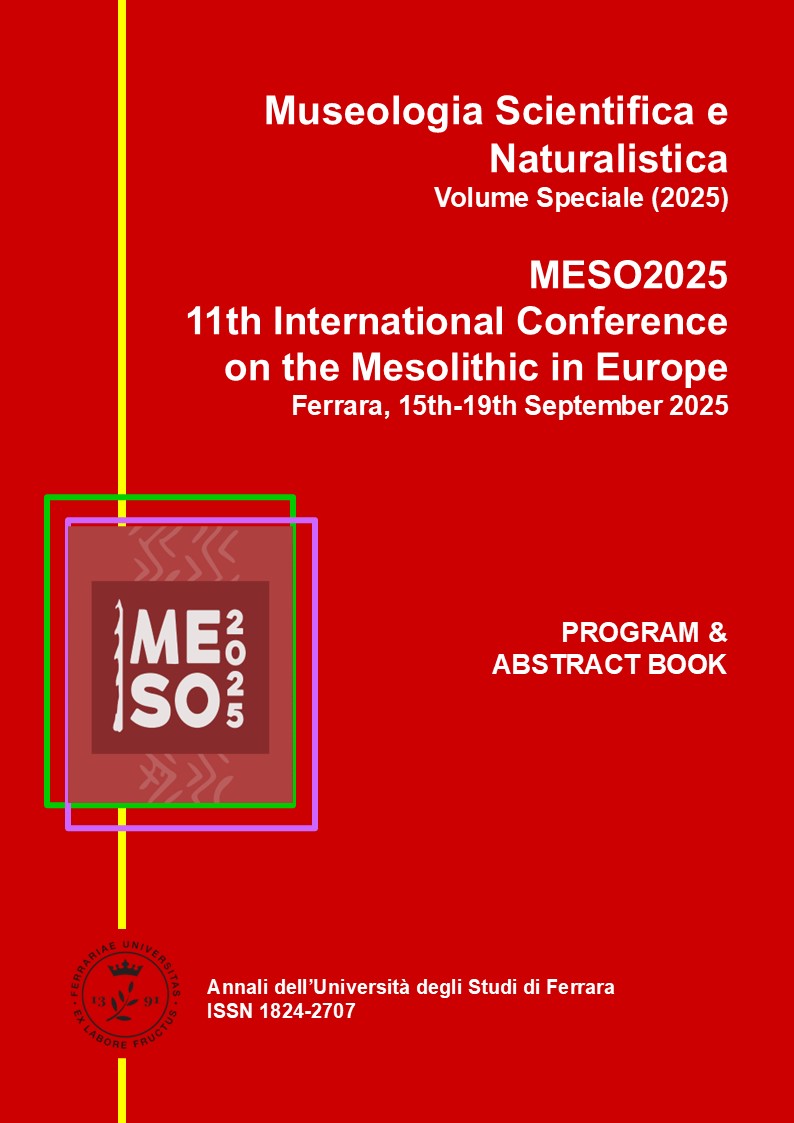MESO2025 - Session 9. Understanding the social context
Coordinated by Emanuela Cristiani and Oreto García Puchol
DOI:
https://doi.org/10.15160/1824-2707/3091Abstract
Approaching Mesolithic social life is fundamental for understanding social relationships among the last hunter-gatherer societies, encompassing various scales from local, regional and interregional connections. Research has focused on explaining the degree of complexity revealed by funerary practices, symbolic actions, hunter-gatherer and fishing strategies, storage practices, technological development, cultural transmission processes, mobility patterns and emerging sedentarisation processes and their implications in changing social strategies.
This session invites papers that aim to integrate data regarding the social organization of Mesolithic communities. We welcome different scientific approaches, including explanations covering different research lines from cultural, geospatial, and biological data. We encourage researchers to present works that test and describe hypotheses about social relationships across different spatial and temporal scales in Mesolithic societies. These works should focus on local settlements and regional analysis involving bioarchaeological data (anthropological and biomolecular analysis for approaching health, diet and kindship patterns) and cultural and contextual information (for addressing social patterns from material cultural records). We are particularly interested in works based on recent approaches to cutting-edge scientific developments, including ancient DNA, isotopic results, histological data, use-wear and residues analysis, dental calculus evidence, cultural patterns, and social network analysis.



